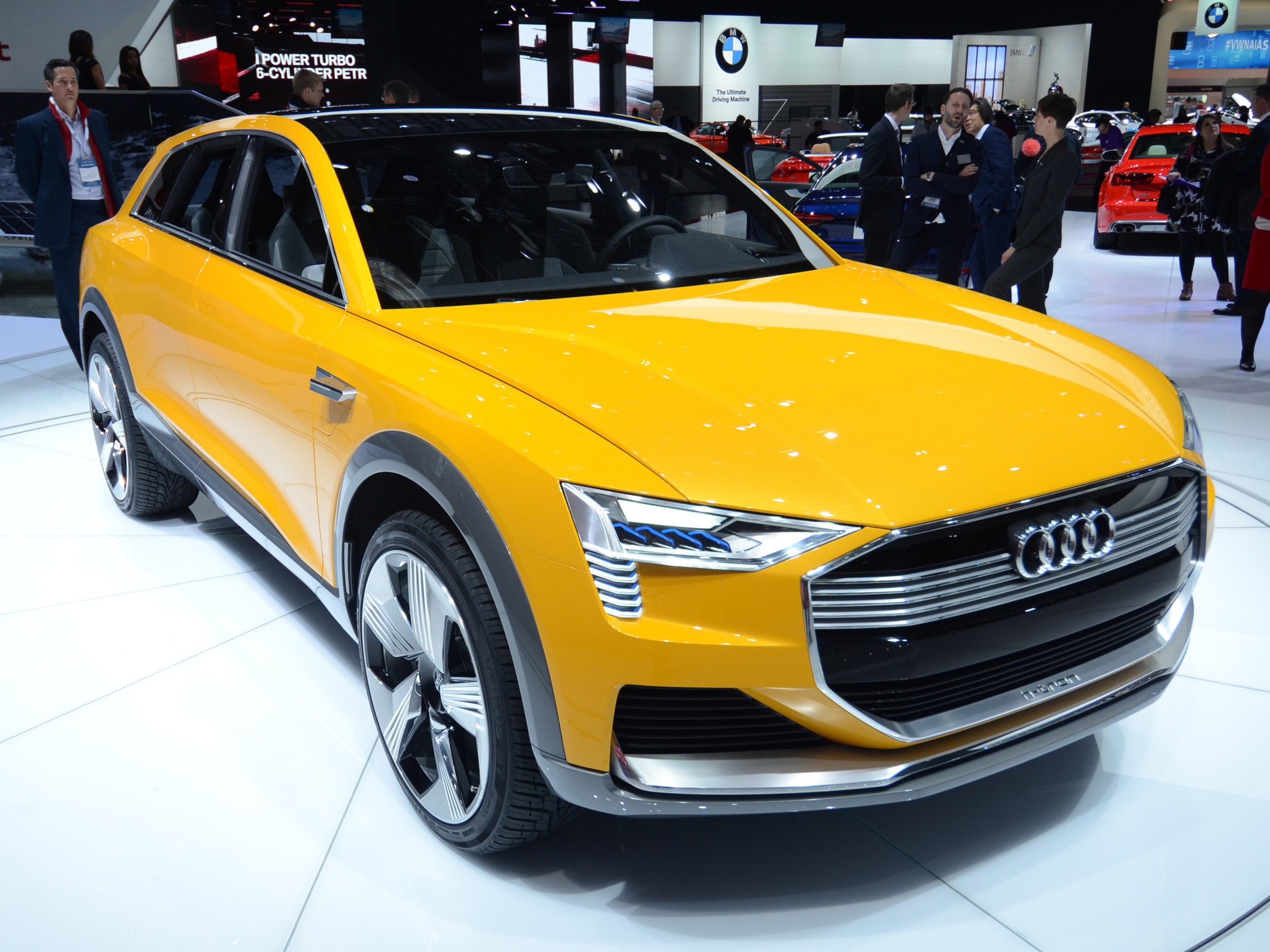
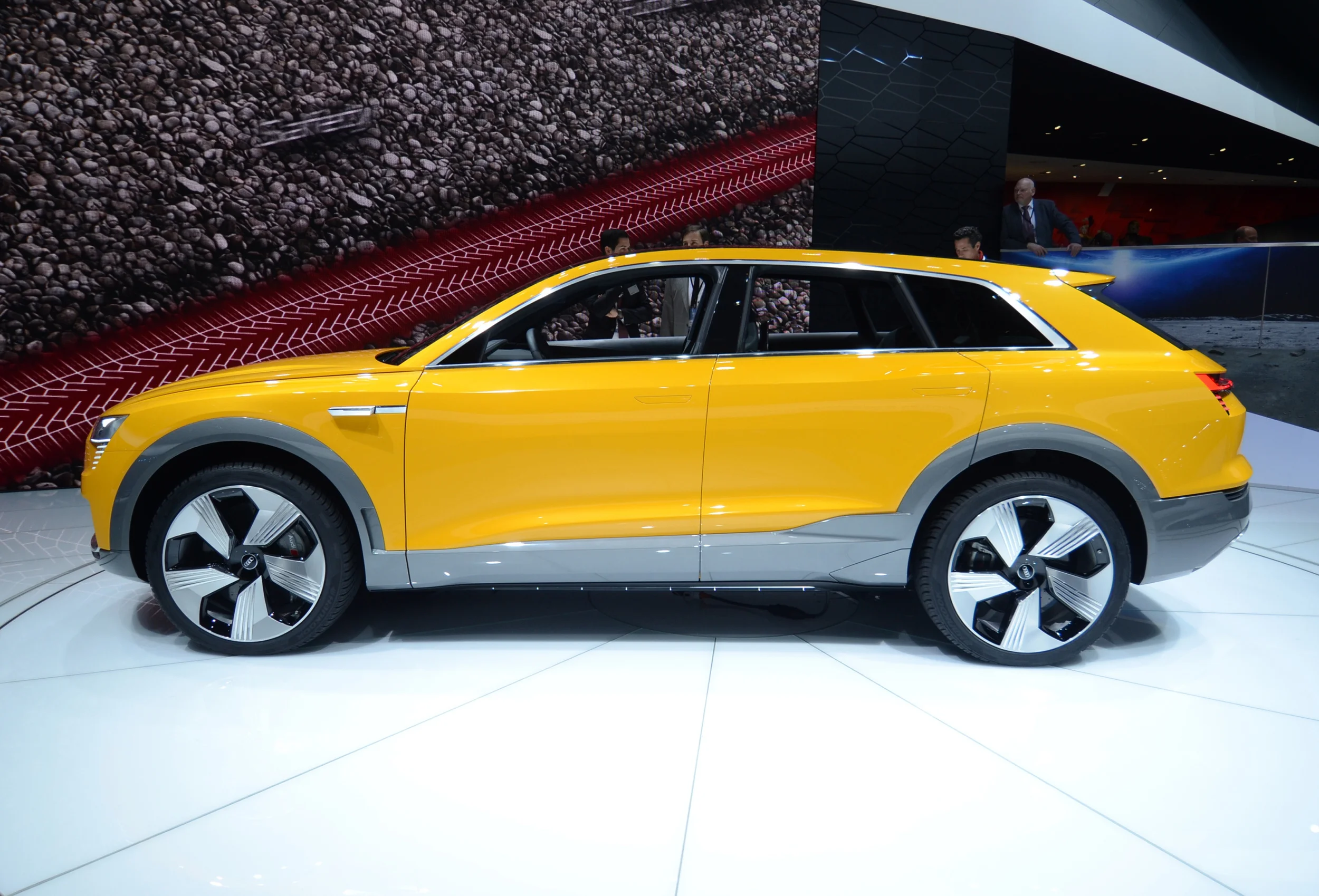
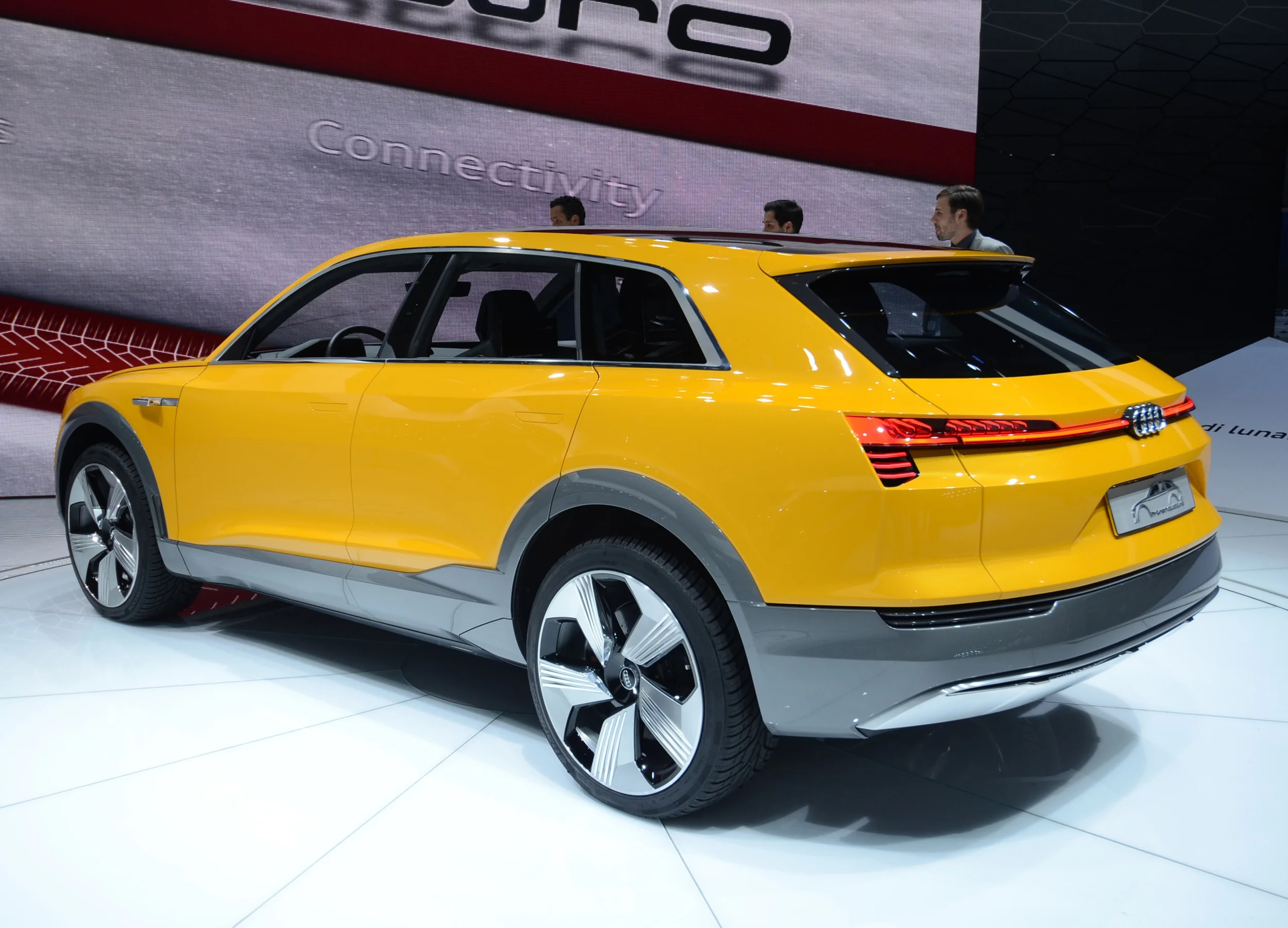
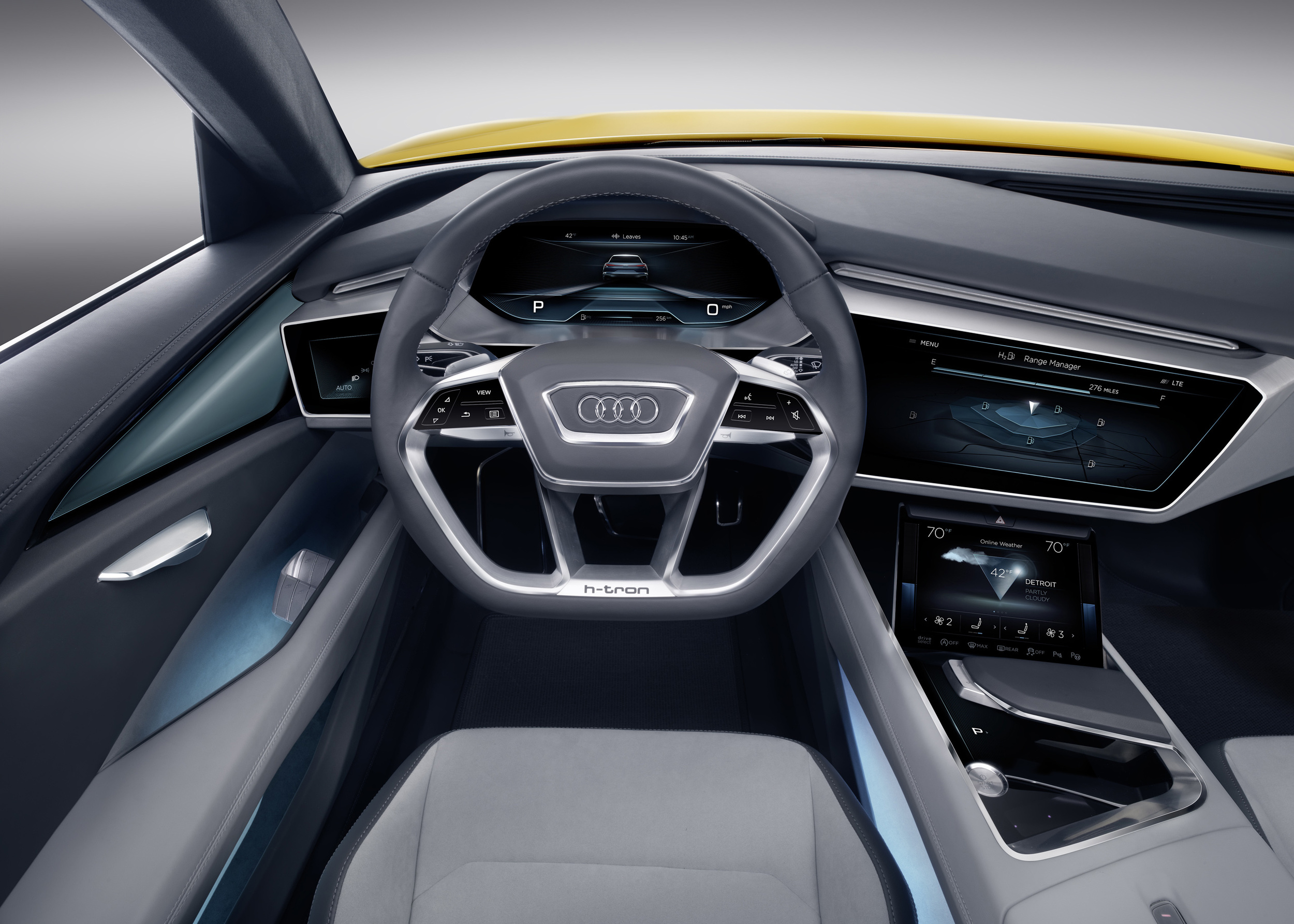
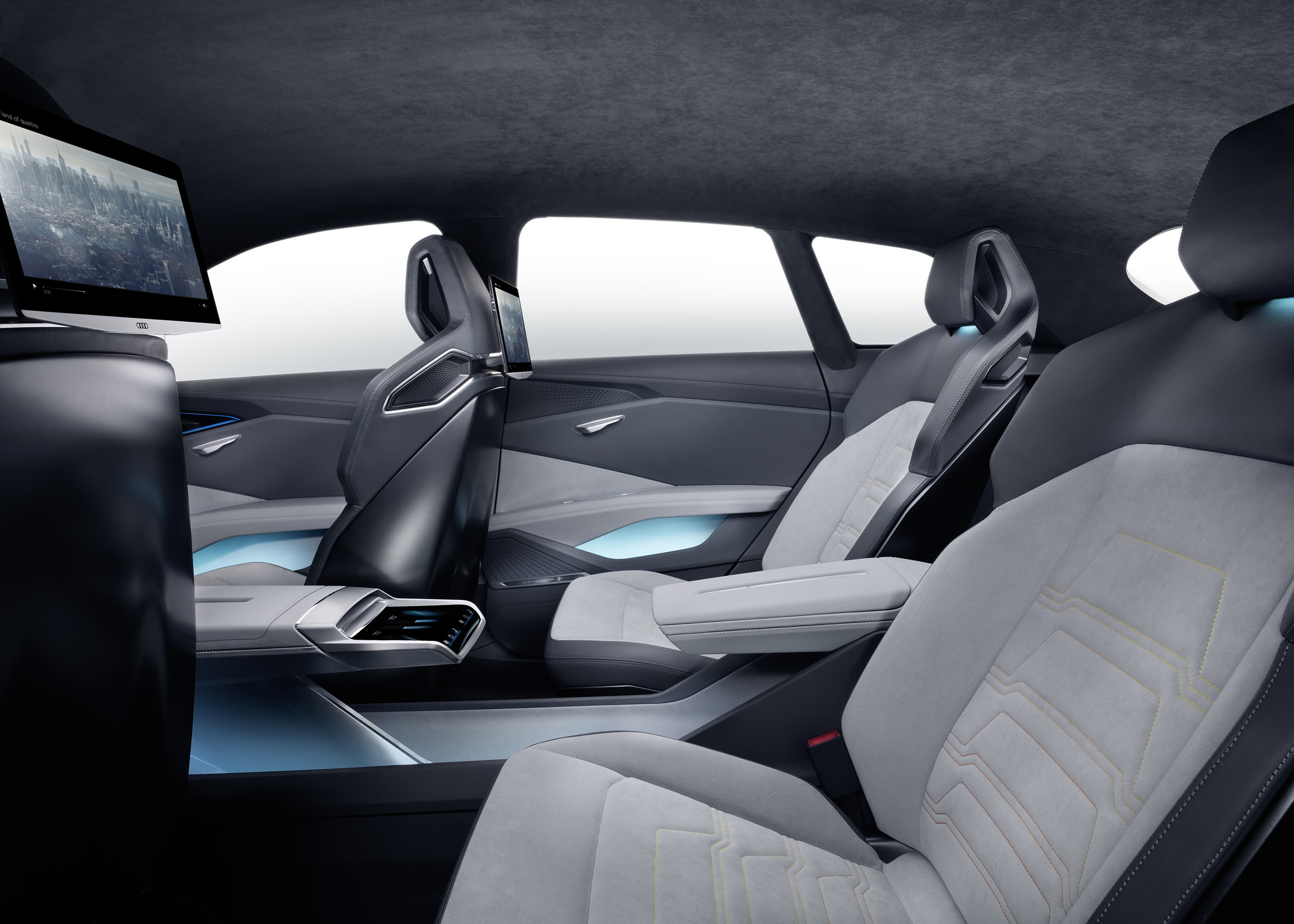
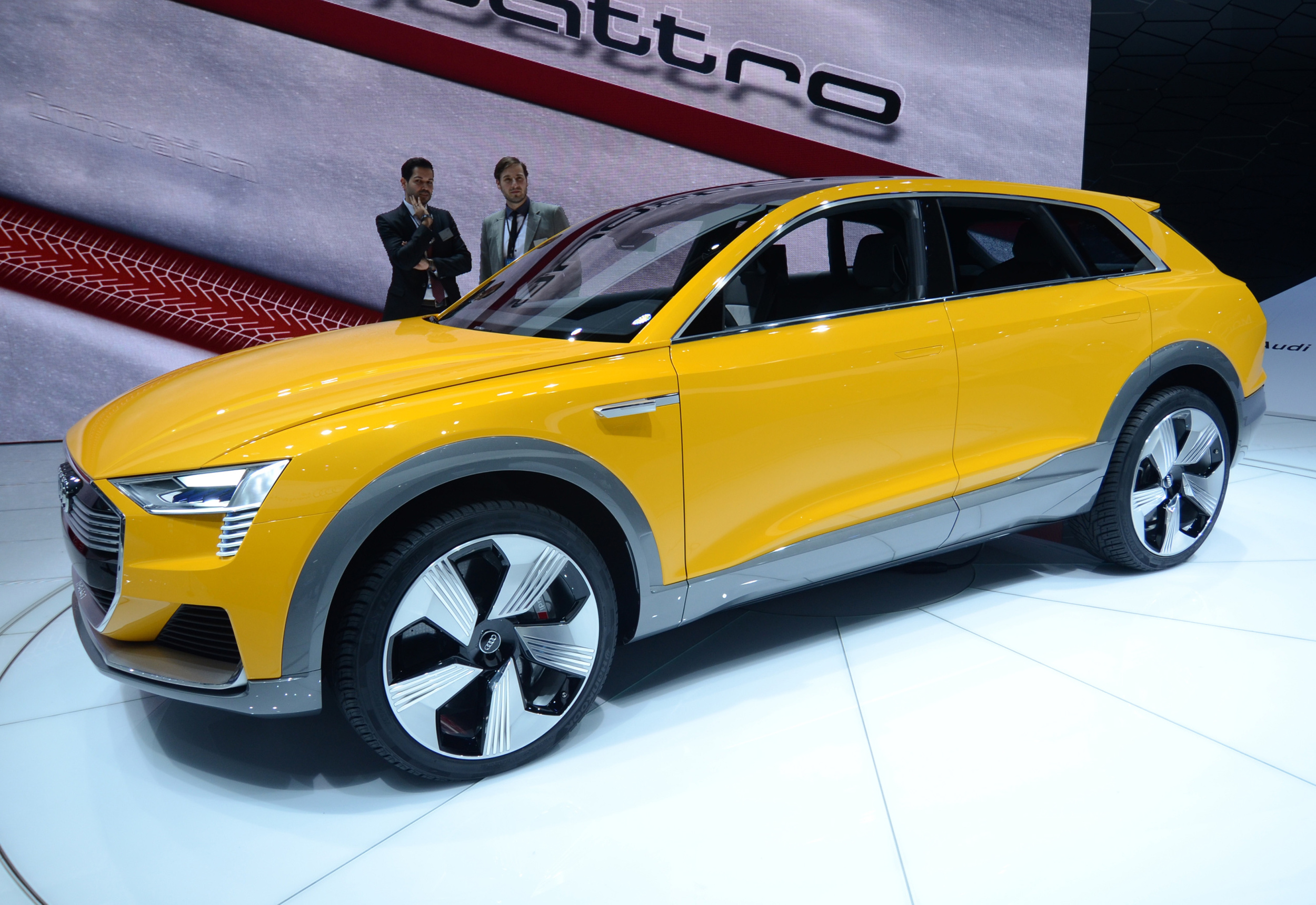

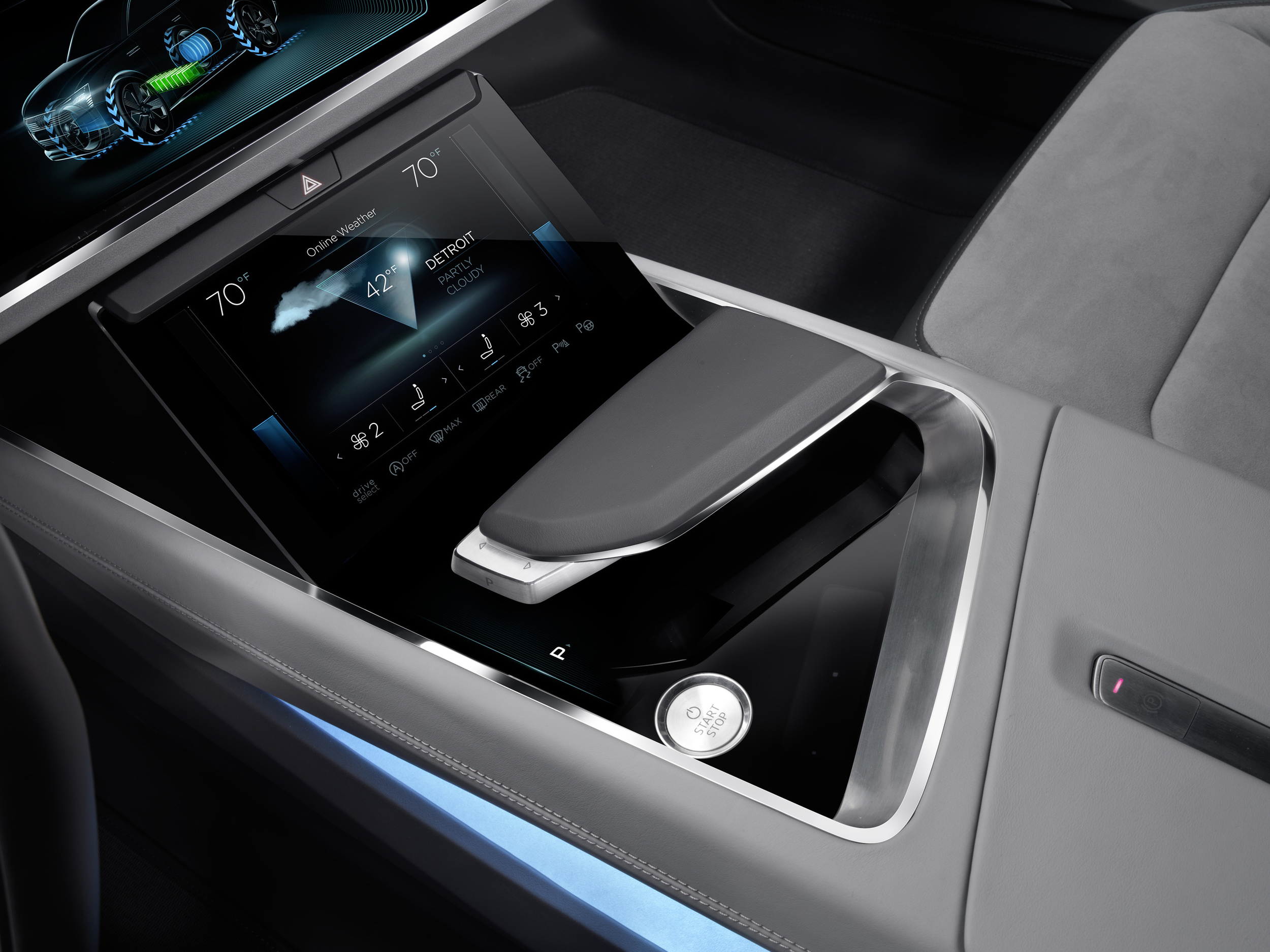
Audi has pulled the covers off the h-tron quattro concept car at the NAIAS in Detroit
Described as the next step towards the long-term Audi goal of CO2-neutral mobility, the SUV concept is powered by a fuel cell with an output of up to 110 kW backed up by a further on-demand power boost of 100 kW from a lightweight lithium-ion battery.
Total system torque of 550 Nm equates to acceleration from 0-62 mph in under seven seconds and a 124 mph top speed.
It can be fully refuelled with hydrogen in around four minutes, and is then ready to drive for up to 372 miles (600 km). An extra energy boost comes from the fitment of the world’s largest in-car solar roof, offering up to 320 watts output or additional range of up to 620 miles (1,000km) per year
The h‑tron quattro concept is closely related to the fully electric e‑tron quattro concept SUV which made its debut at the 2015 Frankfurt Motor Show. Both cars are based on the second-generation modular longitudinal platform (MLB evo), sharing a virtually identical floor assembly despite their different technology.
The h‑tron quattro concept presents the fifth generation of fuel cell technology from Audi and Volkswagen, using lighter materials to reduce weight and improve performance, responsiveness, service life and efficiency.
With an efficiency rating in excess of 60 percent, Audi claims that the fuel cell now surpasses any combustion engine. The “stack”, comprising 330 individual cells, is housed in the forward structure.
The three hydrogen tanks are located beneath the passenger or luggage compartment. At a pressure of 700 bar, they store enough hydrogen for a range of up to 372 miles (600 km).
Every tank is made up of several layers – the inner tank from gas-tight polyamide is wrapped in carbon fibre reinforced polymer (CFRP) and glass fibre reinforced polymer (GFRP). Like a car with a combustion engine, refueling takes about four minutes.
Offering seating for four adults and 500 liitres of luggage space, the five-door Audi h‑tron quattro concept is 4.88 metres long and 1.93 metres wide but its relatively low height of 1.54 metres contributes to a drag coefficient of 0.27. Aerodynamic elements down the flanks, on the underbody and at the rear improve airflow around the car at higher speeds, while cameras take the place of exterior mirrors, to improve efficiency still further.
The h-tron’s headlights and tail lights utilise a combination of high-resolution Matrix laser technology and flat OLED (organic light emitting diode) elements which radiate a blue light to the sides and upwards.
The concept also comes equipped with all the Audi’s piloted driving technologies – radar sensors, a new kind of video camera, ultrasonic sensors and a laser scanner.
Audi says it will be taking this technology into production for the first time ever in 2017, with the next generation of its A8 Saloon.
